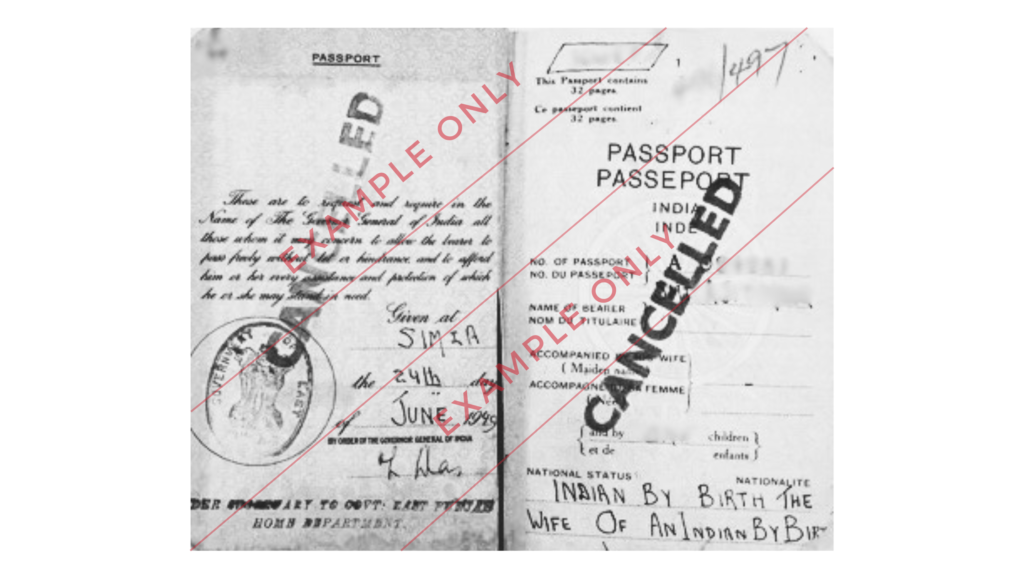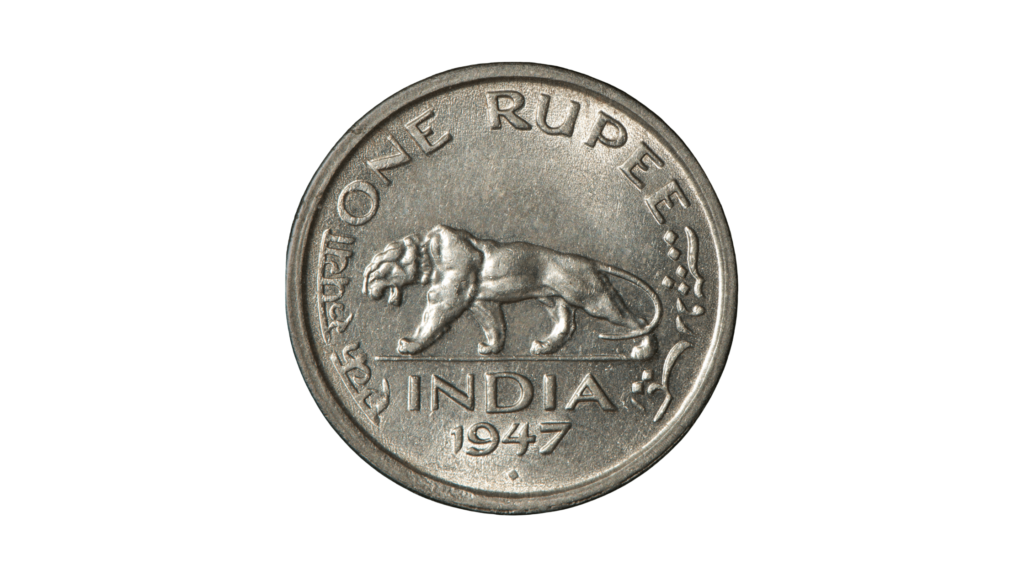Navigating the requirements for the OCI eligibility criteria in an application can be quite confusing, especially when it comes to proving Indian origin. The process often involves gathering a variety of documents to establish lineage and connection to India.
For instance, proving Indian origin based on a grandparent or parent’s background may require birth certificates, marriage certificates, and other forms of documentation. Identifying OCI eligibility can in some cases be subject to grey areas or incomplete documents.
This article aims to clarify important terminology in OCI eligibility criteria, such as “Indian By Birth” and others.
OCI Eligibility Criteria
OCI eligibility criteria refer to the conditions that an individual must meet in order to be eligible for Overseas Citizenship of India (OCI). These criteria typically include factors such as the individual’s citizenship status, place of residence, and lineage. Meeting these criteria is essential for individuals seeking to obtain OCI status, which allows them certain rights and privileges in India, such as the ability to live and work in the country indefinitely.
One crucial aspect of the OCI eligibility criteria is the applicant’s ability to demonstrate their lineage or provide proof of Indian origin.
What is Proof Of Indian Origin
Proof of Indian origin refers to providing evidence or documentation establishing an individual or entities roots or connections to India. This is a vital aspect of OCI eligibility criteria. This may include documents such as birth certificates, passports, nativity certificate or other legal documents.
These types of documents demonstrate a person’s Indian heritage. It may also involve providing genealogical records or other historical evidence to support claims of Indian origin depending on the circumstances.
Factors That May Affect Evidentiary Documentation
Several factors affect an individual’s capacity to prove their Indian origin. For example, the manner in which documents were issued, ie lack of details etc. Take the example of a birth certificate that does not contain the full name of an individual. The document may not be accepted on its own merit. Typically, require further process or supplementary documents to support.
Other factors affecting documents may be due to uprooting from other countries, have immigrating to other countries etc. Any documents used in support of an application must be within the required format of Indian authorities.
Proof of Indian Origin Route
A crucial part of the OCI eligibility criteria is the basis or route on which an applicant is applying, along with the supporting documentation as evidence.
The most common routes being;
- OCI based on Self
- OCI based on PARENT/GRANDPARENT/GREAT-GRANDPARENT
- OCI based on Spouse by way of existing marriage subsisting for more than 2 years
Old Passport Copies & The Term “Indian By Birth”
During the transitional period in India preceding, during, and following colonialism, it is conceivable that individuals of Indian origin possessed identity certificates or old passports that included a combination of terms. Each term implies a particular status accredited to the holder.
Some terms identified in these passports and certificate cards may not fall under (OCI) eligibility status.
Here Are Some Examples of Terms & Status
- Indian Empire passport
- “Indian by birth” or “British protected person native of Indian state”
- Indian by birth the Wife of an Indian by birth etc
- Indian Empire passports stating the status “British Subject”

Amongst these terms of status presented on old passports or certificates of identity documents, passports that state “British Subject” are not acceptable for OCI applications. This remains in accordance with the current (HCI) OCI guidelines.
Understanding Terminology: Old Passports, Certificate of Identity
When analysing eligibility through historical passports and Certificate of Identity cards, it is crucial to comprehend the terminology employed in these documents. This terminology helps differentiate and identify if an individual may use particular documents for OCI eligibility in lineage proof.
1. Indian Passport
This refers to a valid copy of the passport issued by the Indian government to its citizens.
2. Indian Empire Passport
This refers to a historical type of passport used during the time of the British activity in India. It should state the status of the holder as “Indian by birth” or “British protected person native of Indian state”.
3. Indian By Birth
This indicates that the holder’s citizenship or nationality is by virtue of being born in India.
4. British Protected Person Native of Indian state
This refers to individuals who were under the protection of the British government and were native to a specific Indian state.
5. British Subject
This term refers to a historical status associated with citizenship or nationality under British law.
Indian By Birth
The term “Indian by origin” status on old passports refers to the individual’s ancestry or ethnic connection to India. This status indicates that the passport holder has Indian heritage or lineage, regardless of their current citizenship or residency status.
In the context of old passports, this designation served to acknowledge and honor the individual’s cultural and historical ties to India, reflecting the diverse diaspora of people with Indian roots around the world. It also represented a recognition of the individual’s connection to the rich traditions, customs, and legacy of India. While the terminology and passport regulations may have evolved over time.
British Subject
An Indian Empire passport stating the status ‘British Subject’ is not accepted for OCI eligibility criteria. This means that if the Indian Empire passport indicates the status as ‘British Subject’, it would not be considered valid for the OCI application.

Grey Areas & Document Insufficiency
In the context of OCI (Overseas Citizen of India) card eligibility, it is important to consider potential grey areas and the requirement for documentation to stand on its own merit. When assessing the eligibility of an individual for an OCI card, it is crucial to recognize situations where the documentation provided may not be sufficient on standalone merit, necessitating the need for additional supportive evidence.
A professional approach involves thorough scrutiny of the submitted documents to ensure that they align with the established eligibility criteria and, when necessary, seeking supplementary documentation to substantiate the applicant’s claims and qualifications. This approach ensures that the OCI card eligibility process maintains adherence to the prescribed guidelines.
This in turn creates improved chances of a successful OCI application with better chances of approval.
Confusion On Primary Documents
Also, there is often confusion over the primary documents required for OCI eligibility criteria. For example, individuals may assume that a PAN card and other types of documents may be sufficient in place of others. However, this is not the case.
Role of PAN Card In OCI Eligibility Criteria
It is important to note that possession of a PAN card does not establish an individual’s Indian lineage or serve as proof of their origin. It is not widely known that a foreign individual with no ties to India can also acquire a PAN card for financial reasons. Therefore, it should be understood that holding a PAN card is not indicative of Indian origin.
Although holding an active PAN card is now a very important part of financial and investment activities in India. For example, property matters and more.
Summary
Ultimately, navigating OCI eligibility criteria requires understanding important terminology such as “Indian by birth” and providing sufficient documentation to establish Indian origin. The process involves meeting specific criteria and providing evidence of lineage and connection to India.
It’s important to address potential grey areas and ensure that documentation aligns with the established eligibility criteria. Thorough scrutiny and, when necessary, supplementary documentation are essential to maintain adherence to the prescribed guidelines for OCI card eligibility.
How we can help
For assistance with your Indian matters, contact our experienced professionals on +44 208 757 5751 or use our contact form.






